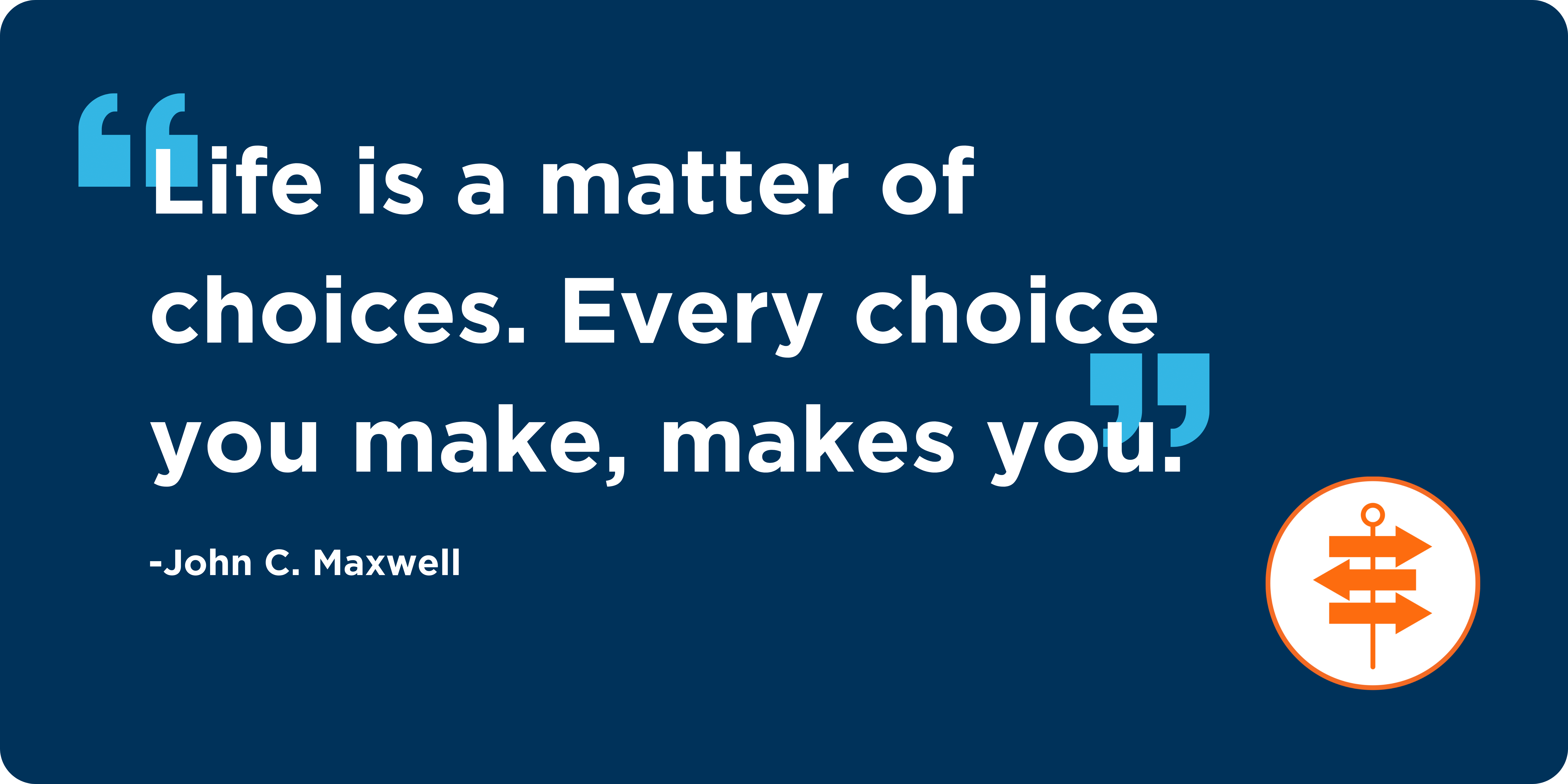
DECISION-MAKING
What is decision-making?
Consider this quote from John C. Maxwell, "Life is a matter of choices, and every choice you make makes you." If you agree with Maxwell that we are defined, at least in part, by the choices we make, then helping our children learn to make good choices is very important.
The social and emotional skill called Decision-Making is about how we solve problems and make choices that are based on our values, how we accept responsibility for our decisions and their consequences, and how we learn from experience.

Activities to build Decision-Making Skills
These activities have been designed to teach decision-making skills across age groups.

elementary students:
Pause Power
Pause Power is a decision-making strategy that has two parts. It begins with identifying what is really important to us and the principles that we want to live our life by. Help children identify what is most important for them. It might be "telling the truth,” or "being a good friend." You can help them identify what's important, but make sure it's what is important to them, not you. Second, help children develop a habit of pausing when they are faced with an important decision and thinking about what's most important to them and then using those principles to guide their decision. This will help them avoid making impulsive decisions or being overly influenced by peer pressure. If a child's decision reflects what is important to them, they will feel better about that decision. So, when you see children struggling with a decision, remind them to use their Pause Power. With practice it will become a habit that will help them make decisions based on their values and their true selves.

middle and high school students:
examining close calls
As children become teenagers, they will find themselves in more risk-filled situations such as driving a car, staying out later, or going on unchaperoned trips with friends. They are likely to have close calls such as a car accident that was barely avoided. We need to encourage adolescents to not just learn from their mistakes, but to learn from their close calls. Help them think through what could have happened, what led to that situation, and what they can do differently in the future to avoid that situation. A close call is a gift, but only if we examine and learn from it. So, encourage your adolescent to examine a close call as a kind of failure they can learn from, not as a success that they should feel good about. Like all social and emotional skills, this practice can serve them well throughout their life.
Additional activities for students and families
Learn more about the rest of the skills measured by the DESSA and access activities that families or educators can use with students K-12 to build their skills.
%20(1).png?width=150&height=150&name=Aperture%20Stacked%20Blue%20Logo%20(1)%20(1).png)







